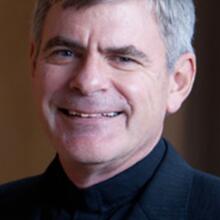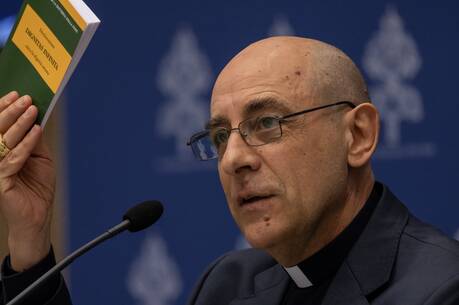Alexander Hamilton is in vogue, with a bestselling biography and an ongoing Broadway hit musical.
As an economist, I cannot help but think about how Hamilton would react to the political campaign of 2016. After all, Hamilton was a New Yorker, a lawyer like Hillary Clinton and a business investor like Donald Trump. Like Trump, he never held elective public office.
He played a key role in George Washington’s general staff in the Revolutionary War, eventually taking command of an artillery force at the Battle of Yorktown. After the United States Constitution was ratified, Hamilton entered Washington’s cabinet not as secretary of war, but as the first secretary of the treasury. A rara avis indeed: a lawyer who knew both economics and military strategy.
Hamilton showed his astute understanding of the fragility of the new American experiment both in private life and in public office. After the war, the New York state legislature passed discriminatory laws against Tories who remained in the United States, and there was widespread support to cut off trade with Great Britain. And of course, there was the ongoing question of slavery. Hamilton called it right on all of these hot-button issues. He defended the rights of the Tories; he understood that the new country, if it was going to grow and prosper, could not go it alone, but would have to trade with a world power like Great Britain; and he opposed slavery. He was not afraid to take unpopular positions, and thus make enemies. Moreover, he understood the importance of judicial review of both state and federal legislation, to preserve the ideals of the American Constitution. He was not one to equivocate.
Hamilton’s youth is in many ways a lot like that of former President Bill Clinton. Both came from poor “broken” families. Both seized opportunities to leave their birthplaces and study at major universities. Both leveraged their contacts from those universities to further their ambitions. Both experienced public scandals involving marital infidelity. Unlike Bill Clinton, of course, Hamilton served his country in time of war. And he was an immigrant.
It is always hard to imagine what historical figures would do in the present. The political and economic world is very different. But Hamilton was a forward-looking, savvy thinker. He knew well the perils of public debt getting out of control, the need for a national central bank with powers to regulate the growth of the money supply and the need to find tax revenue in orderly ways that would not disrupt commerce and investment.
Who would Hamilton support in 2016? Reading about his interactions with two political foes, Aaron Burr and Thomas Jefferson, my feeling is that he would reluctantly support Hillary Clinton. Hamilton disagreed with Jefferson on almost every issue, including support for France in the Anglo-French war after American independence, but he supported him in the presidential election of 1800, because he disliked even more the “cultivated ambiguity” of Burr, who turned out to be Jefferson’s chief opponent. Clearly we see much “cultivated ambiguity” in the Clinton campaign, such as her about-face on the Trans-Pacific Partnership. But Hamilton despised the scapegoating of specific groups of Americans by public officials, such as the Tories who remained after the Revolution or immigrants like himself. Hamilton was someone who reflected deeply about public policy and understood the unintended long-term consequences of rash actions by legislatures and policy makers. This is not obvious in the Trump campaign.
National Security and Immigration
Despite his friendship with the Marquis de Lafayette at the Battle of Yorktown, Hamilton resolutely opposed Jefferson’s proposal to support France in her war with England after the American Revolution. Jefferson responded by labeling Hamilton as disloyal to our key ally in the Revolutionary War. In this case, the South, represented by Jefferson, though more isolationist in trade, was much more interventionist in foreign wars. After all, it was Jefferson who sent the American navy to the Barbary Coast. But Hamilton, a long-time aide of Washington, appreciated the warnings of the first president about the new nation entering into foreign alliances.
Hamilton would also understand the need for immigrants as a source of growth. In the 19th century immigrants coming across the Atlantic and Pacific oceans were a source of human capital, bringing skills and a willingness to move to various parts of the country and work in farming, construction and mining.
Of course, in the 19th century, there were no welfare systems in place, and most of the immigrants arrived as part of closely knit ethnic communities. But again, Hamilton was a forward-looking thinker. If alive today, he would see that without continued immigration, the United States would soon resemble the land of the “setting sun,” Japan. The only way to reduce the age profile of the population, and make the Social Security system sustainable, given patterns in reproductive rates, is to increase the inflow of immigrants, something Japan has been reluctant to do. It is hard to escape the consequences of Trump’s policies. Does he want to put us on course to follow Japan?
Hamilton would also realize the illogic of banning Muslims, or any other identifiable ethnic group, on the basis of their religion. He would argue that an internationally credible reform of U.S. immigration policy requires fairness and non-discrimination on the basis of religion or race. He would also realize that a forced expulsion of illegal immigrants who have been here, for many years, working and supporting families, would be akin to the way the New York Legislature acted against Tories. He would see strong similarities between such expulsions and the proposal of U.S. President James Monroe to relocate freed slaves to Liberia. While Hamilton was a hard-nosed realist about trade and finance, he understood the crucial place of human dignity in the American way of life.
Again, my conjecture is that Hamilton would support Hillary Clinton, very reluctantly, for president of the United States. But I also believe that he would be very disappointed by the overall election campaign of 2016. Someone with a keen sense of justice, he would have been a big fan of the film “The Big Short,” and would be wondering why so few bankers were sent to jail—and why we are not making financial stability, both national and global, the centerpiece of our national political debate.
Paul D. McNelis, S.J., America’s contributing editor for economics, holds the Robert Bendheim Chair in Economic and Financial Policy at the Gabelli School of Business at Fordham University, New York.








